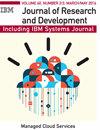建构主义学习方法:社会建构主义学习理论教学模式分析
IF 1.3
4区 计算机科学
Q1 Computer Science
引用次数: 0
摘要
社会建构主义理论是推动以学习者为中心的教学模式在教育领域蓬勃发展的主流观点之一。这种学习模式旨在暗示学习者在教学环境中的自主性和灵活性。这种社会建构主义强调学习者的自主性、反思思维、解决问题、协作学习、脚手架以及讨论和辩论是教育中的主要学习原则。在教学话语中,社会建构主义学习模式建立了批判性、问题解决性和协作性的学习策略,以提高有意义的学习成果。并且,内部和人际层面的互动在促进有意义的学习辅导过程中起着至关重要的作用。该理论认为,符号(语言)、ZPD、MKO和脚手架是建构主义学习教学模式的关键变量。在这个过程中,学生处于中心位置,他们在学习过程中扮演着积极的思考者、共同建设者和积极参与者的角色。另一方面,在教育的整个教学过程中,教师只是作为促进者、引导者和激励者。本文章由计算机程序翻译,如有差异,请以英文原文为准。
Constructivist Approach to Learning: An Analysis of Pedagogical Models of Social Constructivist Learning Theory
The social constructivist approach is one of the dominant perspective that flourished the learner centered pedagogical model in education. This model of learning aims to imply the learners' autonomy and flexibility in instructional setting. This social constructivist highlights the learners' autonomy, reflective thinking, problem solving, collaborative learning, scaffolding as well as discussion and debates as the major learning principles in education. In the teaching learning discourse, the social constructivist learning model established the critical, problem solving and collaborative learning strategies to enhance the meaningful leaning achievement. And, the intra and interpersonal level of interaction play the crucial role in promoting the meaningful learning for tutoring process. This theory claims that the sign (language), ZPD, MKO and scaffolding are the key variables for the constructivist pedagogical model of learning. In this process, students are in the central place where they play the role of active thinker, co-constructor and active participant in learning process. Another side, teachers are only as the facilitator, guide, and stimulators within the whole instructional process in education.
求助全文
通过发布文献求助,成功后即可免费获取论文全文。
去求助
来源期刊

IBM Journal of Research and Development
工程技术-计算机:硬件
自引率
0.00%
发文量
0
审稿时长
6-12 weeks
期刊介绍:
The IBM Journal of Research and Development is a peer-reviewed technical journal, published bimonthly, which features the work of authors in the science, technology and engineering of information systems. Papers are written for the worldwide scientific research and development community and knowledgeable professionals.
Submitted papers are welcome from the IBM technical community and from non-IBM authors on topics relevant to the scientific and technical content of the Journal.
 求助内容:
求助内容: 应助结果提醒方式:
应助结果提醒方式:


